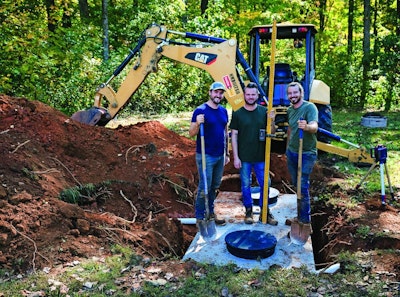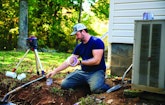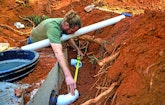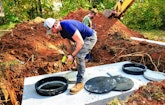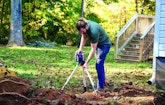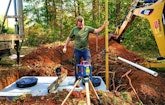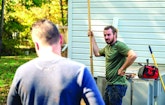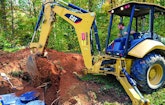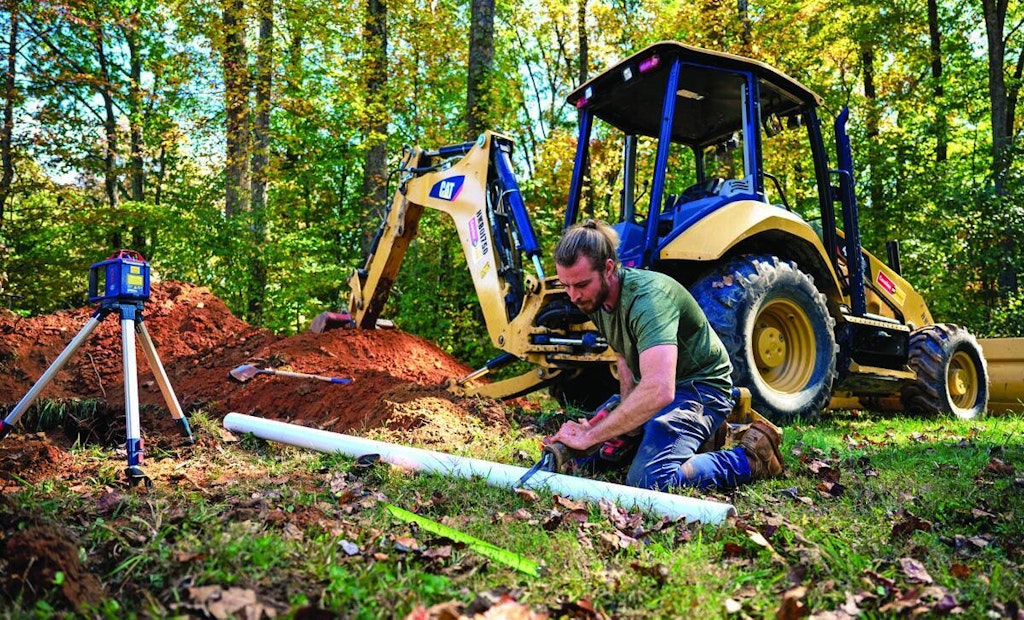
Shane Broyhill cuts a length of PVC pipe during a tank installation. A Bosch laser level and Cat backhoe were used on the project. (Photos by James Nix)
Shane Broyhill got started in the wastewater industry at age 14, riding along in a vacuum truck with an uncle who had recently started a pumping business.
In the years that followed he alternately worked in the restaurant sector and learned different sides of the onsite business....
